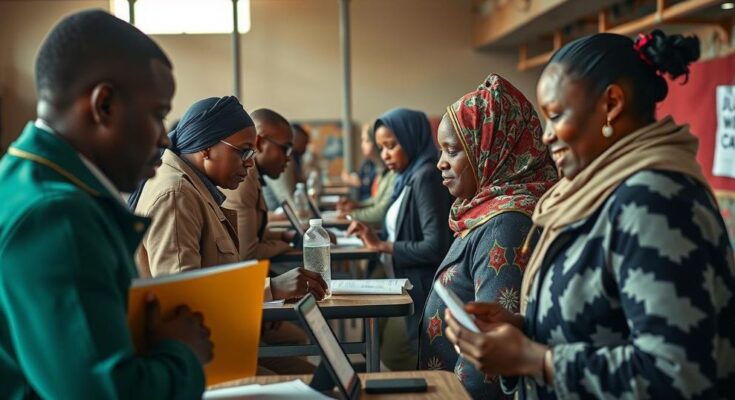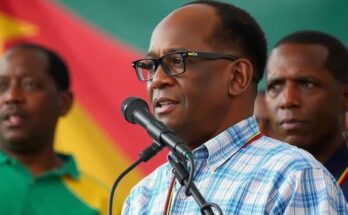Namibia has reopened 36 polling stations until Saturday following a troubled election marked by long delays and technical issues. Opposition parties have condemned the situation, raising demands for electoral reform. Voter dissatisfaction is significant, particularly among the youth, challenging the ruling SWAPO party’s lengthy dominance.
Namibia has temporarily reopened voting in 36 polling stations until Saturday, amidst criticism following an election characterized by significant technical issues. This election marks a critical moment as it tests the ruling South West Africa People’s Organisation (SWAPO) party, which has been in power since Namibia’s independence from South Africa in 1990. Electoral delays resulted in some voters waiting up to 12 hours in line, with reports of equipment failures and ballot shortages exacerbating the situation.
Opposition parties have expressed their dissatisfaction, labeling the election process as flawed, and some have called for its suspension. The electoral commission’s decision to reopen polling stations follows widespread complaints and frustration among voters. In Windhoek, attendance at the reopened polling station remains low, with many fearing the congestion that may result from limited voting locations.
These elections come at a time of rising challenges for SWAPO, including youth unemployment and growing dissatisfaction particularly among younger voters born after independence. The party’s candidate, the vice-president, seeks to become the first female leader of Namibia, but may face the prospect of an unprecedented run-off, underscoring the contentious nature of these elections.
The significant delays and logistical issues have led to a growing sense of urgency and frustration among the electorate, highlighting the need for effective electoral reform to ensure a smoother voting process in the future.
As voters navigate the chaotic environment, their voices and experiences indicate a critical moment in Namibia’s political landscape, where many are eager for accountability and improvement in democratic processes.
Namibia’s recent elections positioned the ruling SWAPO party under intense scrutiny due to logistical failures and voter dissatisfaction. The electoral process, disrupted by technical malfunctions with equipment such as tablets and scarcity of essential materials, has intensified public frustration. Given the historical stability of Namibia as a democratic nation, these challenges have raised alarm bells and sparked protests from opposition parties, ultimately testing the strength of the ruling party’s hold on power.
The reopening of polling stations in Namibia amidst a troubled election highlights the pressing need for improvements in the electoral process. As voters express their concerns over long waits and logistical chaos, there is a clear call for accountability and the necessity of reforms to enhance future elections. The outcome of this election will not only shape Namibia’s political landscape but also address the aspirations and frustrations of its citizens.
Original Source: www.zimlive.com




